 If you've ever heard a grinding noise when driving a car slowly, you've likely wondered what could be wrong. Though every car makes sounds, there are some noises that immediately alert you to a potential issue. A grinding noise is one that indicates a serious problem. We've done some research to help you identify the most common causes of grinding noises in cars.
If you've ever heard a grinding noise when driving a car slowly, you've likely wondered what could be wrong. Though every car makes sounds, there are some noises that immediately alert you to a potential issue. A grinding noise is one that indicates a serious problem. We've done some research to help you identify the most common causes of grinding noises in cars.
Grinding noises can be caused by several possibilities. The most common causes of grinding noises when driving slowly are:
- Issues with your brakes
- Failing CV joints
- A bad transmission
- Bad wheel bearings
In this post, we will give more information about these possibilities and explain what might be happening with your vehicle. To find out more about what might be causing a grinding noise, keep reading!
Disclaimer: No online advice can replace that of a qualified mechanic. The information in this post is for educational purposes only. Car problems can be extremely dangerous and when in doubt, you should always get professional help.
Issues With Your Brakes
Cars are complex machines that are full of complementary pieces and parts. These machines rely on every part working as intended to ensure that the car functions as designed. When you hear grinding noises coming from your vehicle, the odds are that something is not working as intended. The most common cause of a grinding noise is your brakes.
Brakes are basically metal clamps with pads that squeeze the brake disc. When the pads begin to dissipate, you will likely hear a squealing sound. If you ignore that sound and allow the pads to continue to wear, you will eventually hear a grinding noise.
This grinding is caused by metal on metal contact. Grinding indicates that your brake pads are all but gone. If you continue to drive with brakes in this condition, you risk not only a large repair bill but your safety as well.
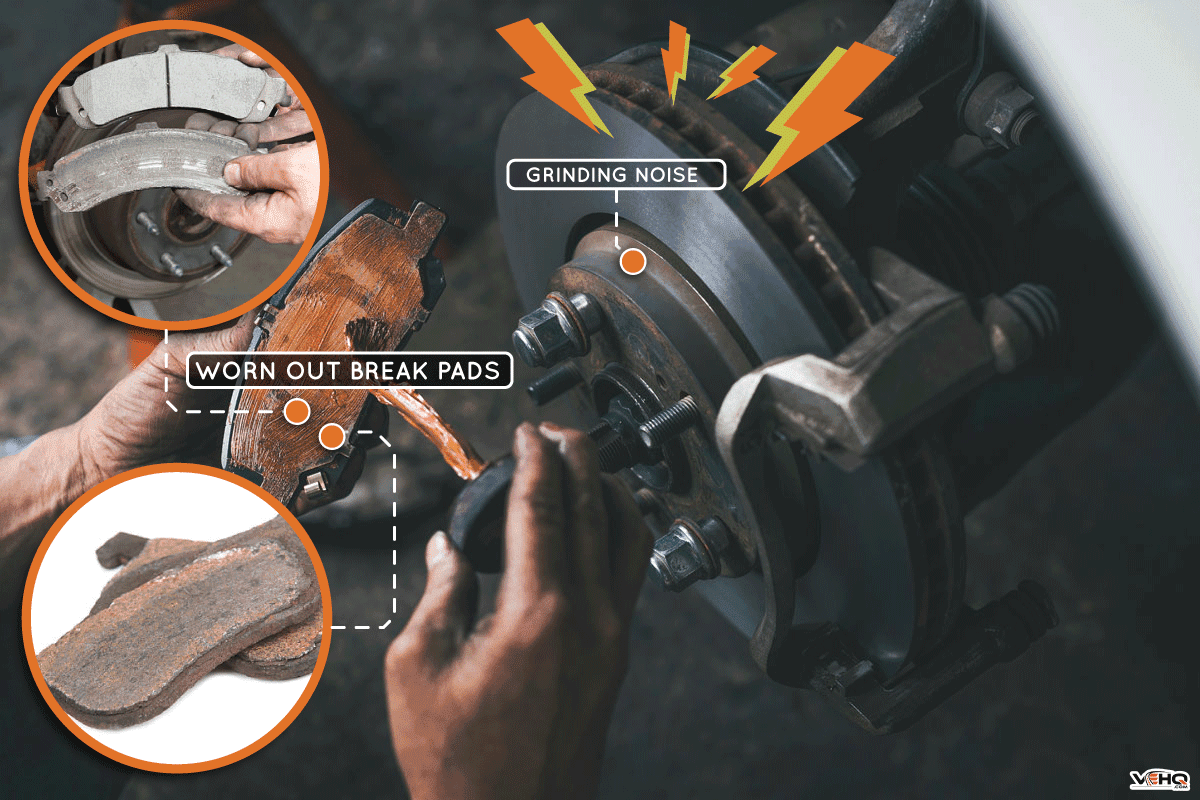
Failing CV Joints
Another potential cause of grinding noise is CV joint failure. CV stands for constant-velocity, and these joints essentially allow your wheels to function as intended. If you are making turns at slow speeds and hearing a grinding sound, it is possible that your CV joints need to be replaced.
If your CV joints are not repaired or replaced, your car will no longer drive. If CV joints fail while you are driving, they could cause you to lose control of your car and crash.
A Bad Transmission
The third source of the grinding noise you hear could be the result of a failing transmission. Though most people associate transmission issues with shaking, a struggle to change gears smoothly, or a jumping sensation, grinding can also occur.
This noise can occur as a result of issues with the transmission fluid or a problem with the gears themselves. Whatever the reason, it is important to have your transmission evaluated by a professional as quickly as possible. Transmissions are an essential part of any car and can be very expensive to replace. Taking quick action can save you a lot of money in the long run.
Bad Wheel Bearings
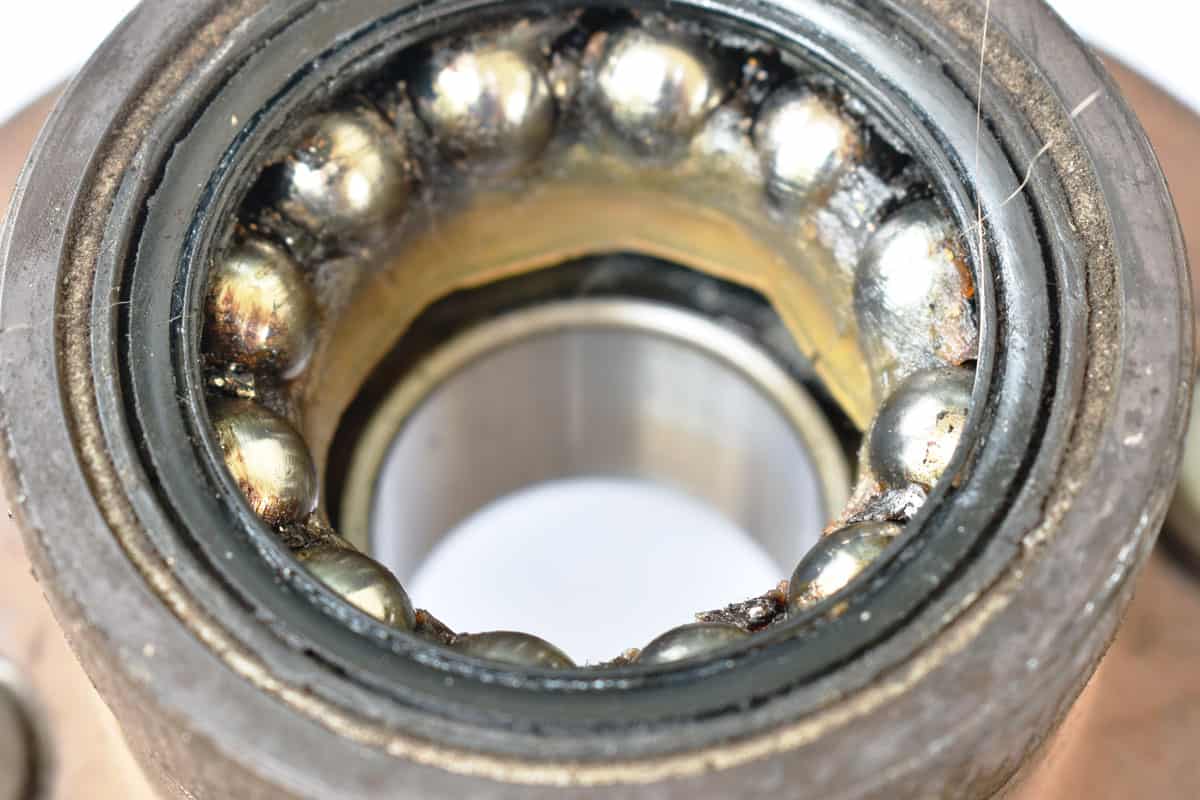
The final potential cause of this type of noise is wheel bearings. Bad wheel bearings can also cause a grinding sound. Typically, though, the noise is most common as you are accelerating. This is one way you can distinguish the source of the noise from brakes, CV joints, or the transmission.
Are Grinding Brakes Dangerous?
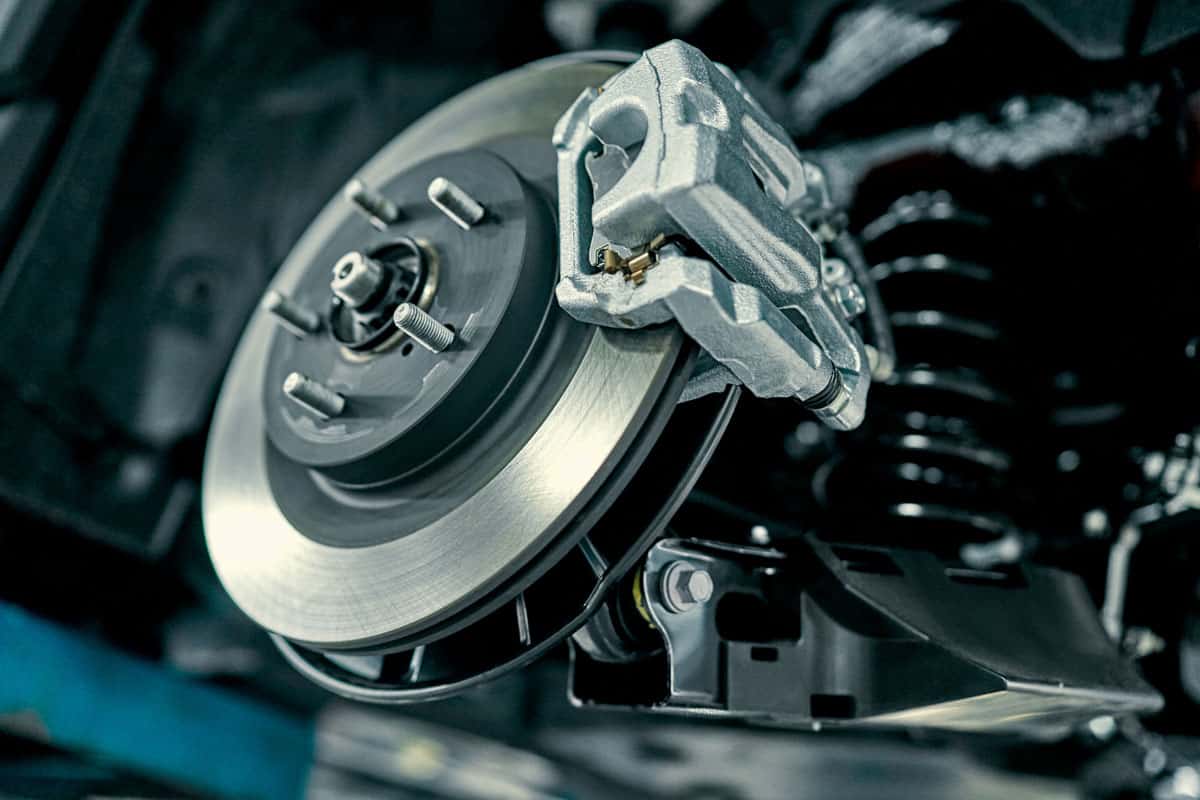
The simple answer to this question is yes! As we mentioned earlier, grinding brakes are a signal that you have almost or totally run out of brake pads. This means you have metal rubbing on metal which could be causing significant damage to your car.
Furthermore, you are greatly reducing your car's ability to not only stop quickly but to even stop at all. If you hear a grinding sound when you put your foot on the brake pedal, do not put off a visit to the mechanic. Your next stop should be a garage where you can have a certified mechanic fully inspect your car's brakes.
When you ignore the sounds of grinding brakes, you are putting not only yourself and your family in jeopardy, but you are endangering the lives of other motorists on the road.
Does A Bad Transmission Make A Grinding Noise?
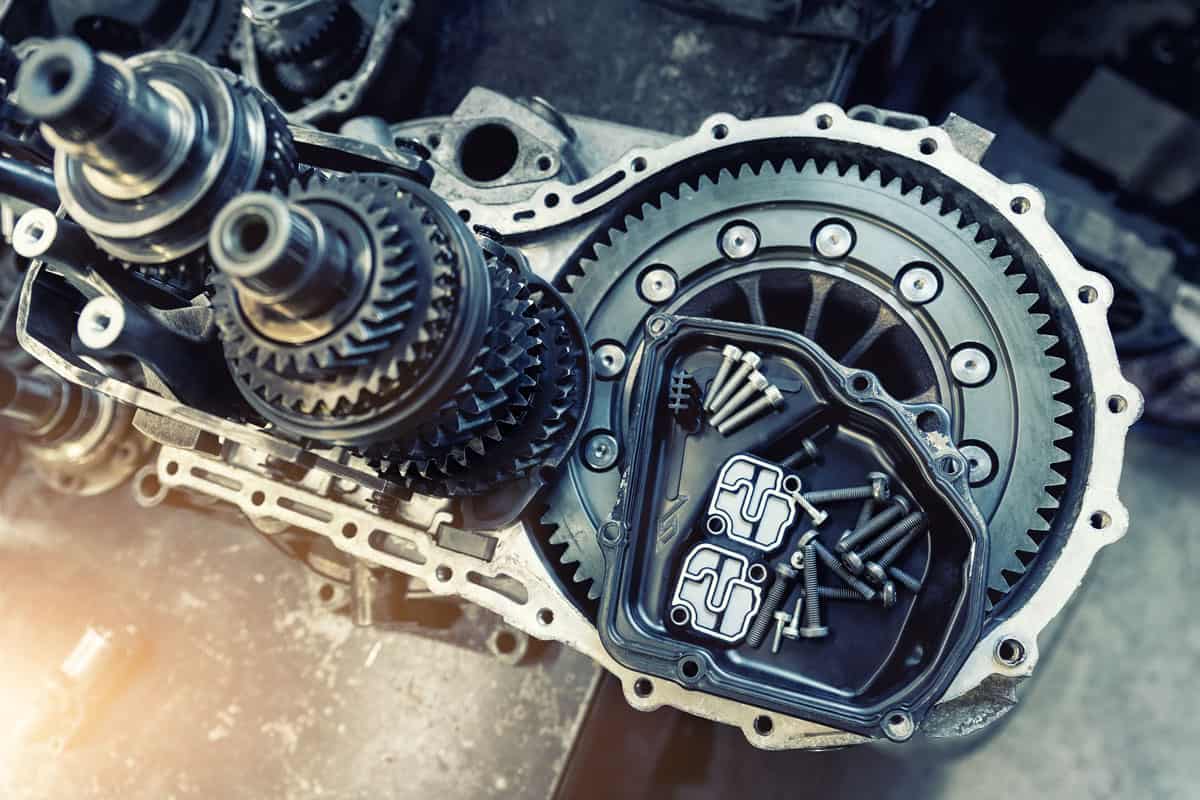
As we mentioned earlier, a bad transmission can make a grinding noise. Though a grinding noise is more often associated with a failing manual transmission, it can also be indicative of a failing automatic transmission.
More often than not, transmissions have issues as a result of fluid problems. Either your transmission does not have enough fluid, it has too much, or the fluid is dirty and needs to be replaced. If you do not regularly have your transmission fluid levels and color checked, you will likely have costly problems down the road.
Additionally, you may hear a grinding noise if your transmission has broken gear components. If these pieces are broken in any way, they can cause grinding noises as the transmission tries to change gears.
As with brakes, if you hear a grinding noise and believe it may be related to the transmission, take it to a professional right away. If you are experiencing shaking, jumping, or problematic shifting, you should also take your car to a transmission expert. They can perform a full inspection and determine the source of your issue.
What Does It Sound Like When A Wheel Bearing Is Going Out?
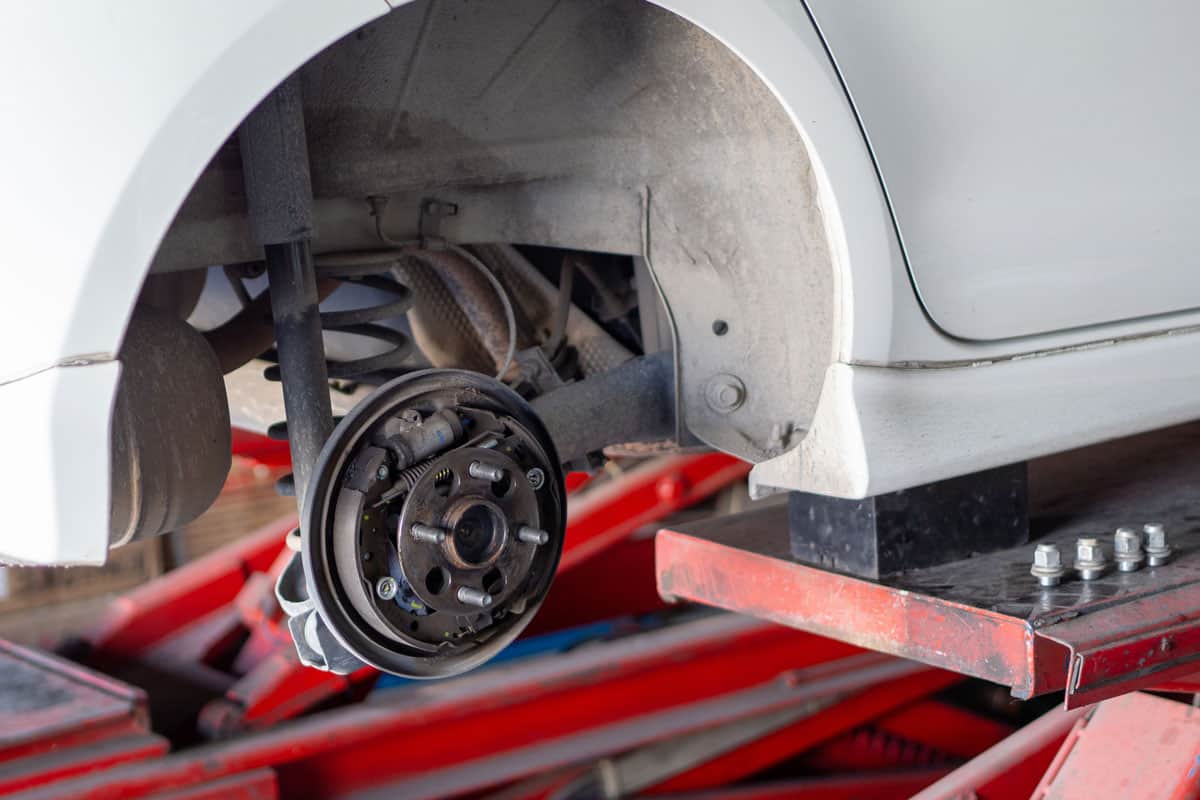
When wheel bearings go bad, they too can make a grinding noise, particularly when accelerating. However, grinding is not the only indication of bad wheel bearings.
You may notice a humming sound as your speed increases, or you may feel as though the car is not responding when you attempt to steer it. If you have bad wheel bearings, you may also feel vibrations as you are driving.
If you begin to notice any of these things, get your car to the shop. Wheel bearings are critical components and are needed to keep your car operating safely. If you suspect that they are no longer functioning properly, it is important to have them inspected by a professional.
In Closing

As we have said, cars are complex machines. They require proper maintenance and attention in order to continue to operate safely. When you hear unusual noises of any kind, you should have your car looked at by a professional.
If you have questions about what to do when you hear other types of sounds from your car, be sure to check out our other posts:
